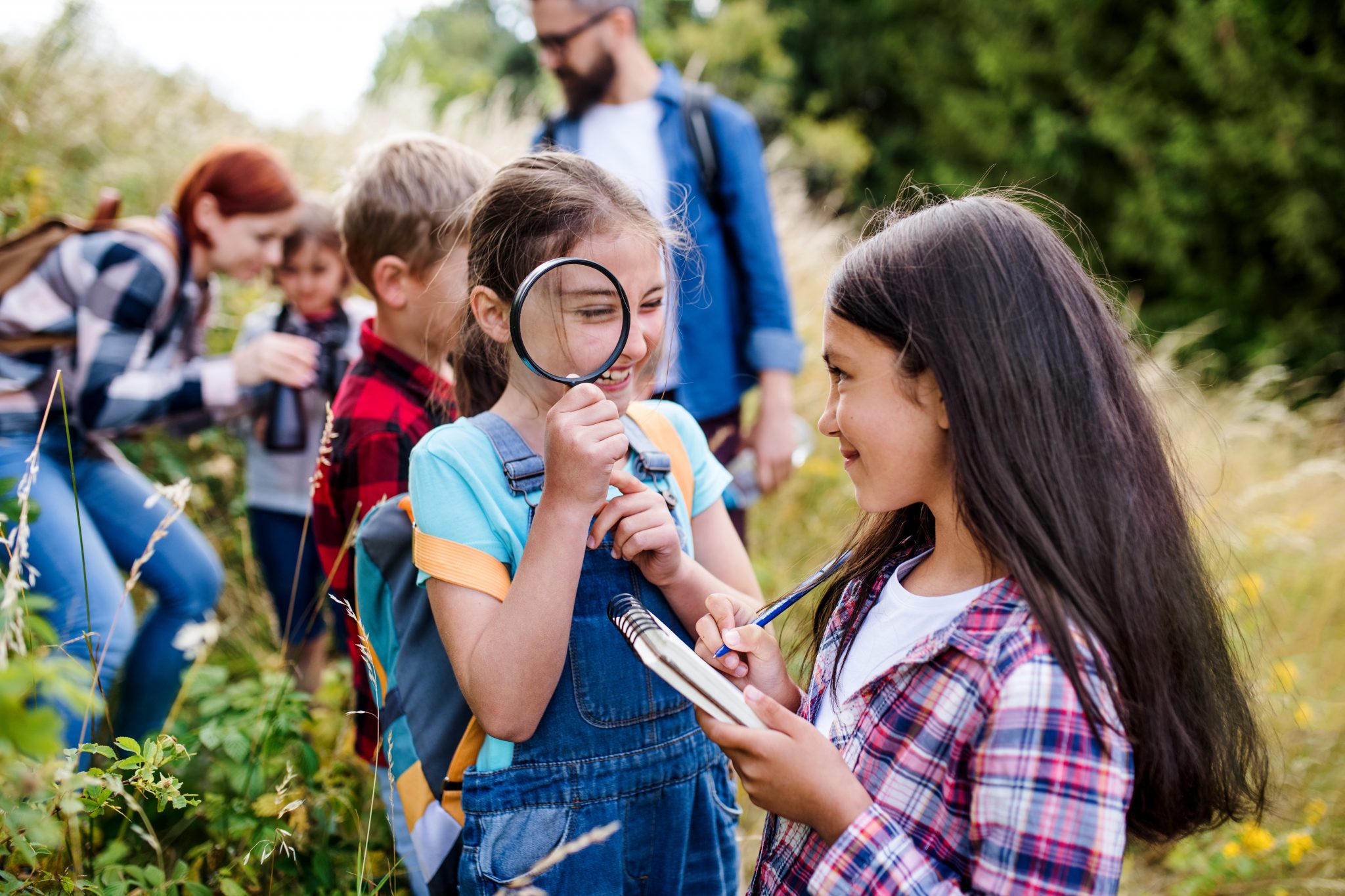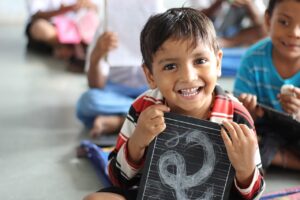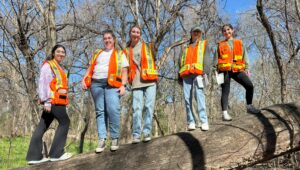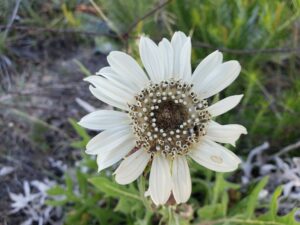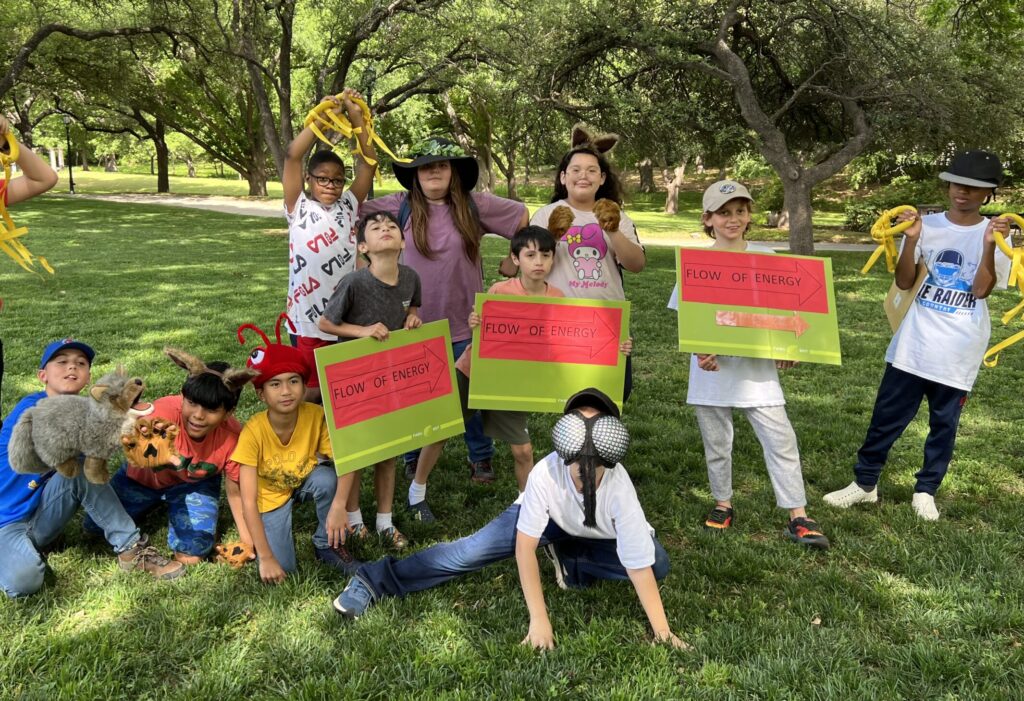
The education team is putting the final touches on a new STEM initiative starting in September and aimed at helping fourth-grade teachers meet state standards for energy, organisms and environments. The program, funded by a generous grant from the Sid Richardson Foundation*, combines support for classroom teachers including professional development, field trips and professional learning communities.
“We are equipping teachers with tools to help them communicate concepts such as the flow of energy through an ecosystem–concepts that are included in the standards for fourth grade and that are foundational for the fifth grade STAAR test,” says Education Program Manager Sheryl Schickedanz. The STAAR (State of Texas Assessments of Academic Readiness) tests are a series of standardized tests used to assess student achievement. The Science STAAR test is administered in the fifth grade.
High-energy, highly interactive field trips
Schickedanz, along with Field Trip Coordinator Joanne Howard and other education staff, began work on the new STEM (science, technology, engineering and math) initiative a year ago. “The state science curriculum gets regular updates with new concepts, and we saw a need to to support teachers as they transition from the old standards. Our goal is to equip teachers to prepare students to solve problems through Engineering Processes and Design Thinking, which are new this year in the TEKS,” she says. TEKS (Texas Essential Knowledge and Skills) are the state standards for what student should learn at each grade level.
Updates to Texas’ fourth-grade teaching standards require schools to teach students not only subject matter information but also thinking skills. Two of those are Engineering Processes and Design Thinking. The Texas Education Agency explains these two concepts as follows:
Engineers Processes: Defined as “is a thinking process used to teach and apply concepts and skills in an integrated manner. The EDP encourages open-ended problem solving and learning from failure.” Emphasizes “identifying questions or defining problems, imagining, and brainstorming a solution, planning, creating, testing, and improving the design.”
Design Thinking: Defined as “creative and user-centered design methodology that provides a solution-based approach to solving problems. It combines empathy for the context of the problem, creativity in the generation of insights and solutions, and rationality and feedback to analyze and fit their solutions to the appropriate context
Over the course of the 2022-2023 school year, the team incorporated these key concepts into the Garden’s STEM Challenges Field Trip for fourth graders. This field trip program, subtitled Ecoregion Exploration, introduces students to four different ecosystems of Texas: Great Plains, North-Central Plains, Coastal Plains and Mountains and Basins. Through interactive, hands-on activities, students learn about habitats and ecosystems, the organisms that make their homes in different ecosystems and how energy flows through these ecosystems.
The team looked at STAAR test results to see which questions chronically receive low scores and design activities to reinforce those concepts. For example, Schickedanz points to food webs. “Students learn about food webs and whom eats who in third grade, and they usually understand it,” says Schickedanz. “But the tests present students with diagrams showing how energy moves from one organism to another, and students often really struggle with understanding how the arrows demonstrate that movement.”
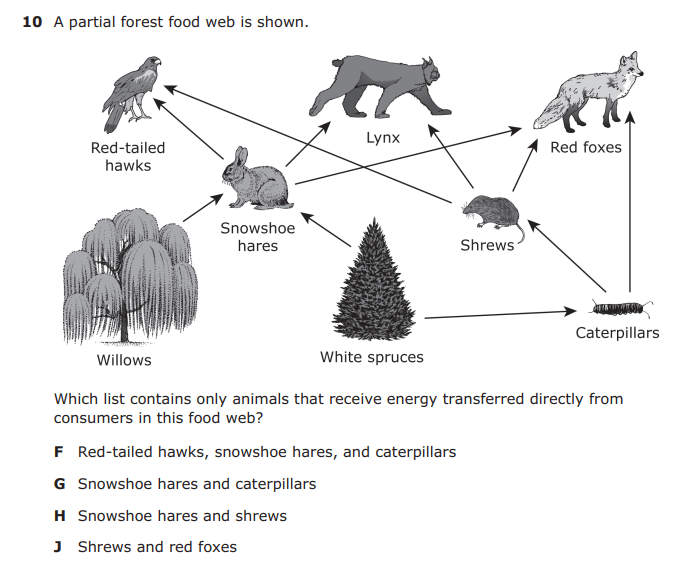
In response, on their field trips, students complete an activity in which they act as characters in a play about a food web. “They all dress up–we have the sun, trees, squirrels, wolves, and decomposers like bugs. They love that part,” Schickedanz says. “Another character plays the part of energy moving from one location to another. We film them acting this out and send it to the teacher so they can watch it later. It really helps that concept stick.”
Teacher education and support
After a year testing the field trips, Garden education staff will this year introduce the program to teachers as part of a comprehensive program that combines field trips, professional development and a passions project, where teachers have students solve a challenge of their choice and present that solution to their colleagues during follow-up training at the Garden.
About 50 teachers from Fort Worth ISD and Crowley ISD elementary schools will participate. They will begin their first professional development training by going through the STEM Challenges field trip for themselves. This will be followed up by three more professional development workshops throughout the 2023-24 school year focused on fourth-grade TEKS surrounding organisms, environments and energy.
Garden education staff will also sponsor peer support groups where teachers can turn to one another for ideas and inspiration. “We’re going to create a core group of teachers who can really lean on each other for help,” says Schickedanz.
Next year, the team will work with the school districts to evaluate data including student grades and test scores and refine the field trips and professional development workshops when necessary. Going forward, the education team intends to offer continuing support to this first cohort of teachers as well as to roll out the program to more teachers and more school districts.
Teachers continue to struggle with post-pandemic effects on their students, as well as ever-evolving standards. Schickedanz hopes the initiative will not only provide them with tools they can use in their classrooms but also an opportunity to think deeply and creatively about the science concepts and how to best teach them.
“Teachers don’t have a lot of time to process things, with all of the other demands on them,” say Schickedanz. “I hope we can bridge that gap.”
* This article previously incorrectly stated that the project is funded by the Rainwater Foundation. We regret the error.

